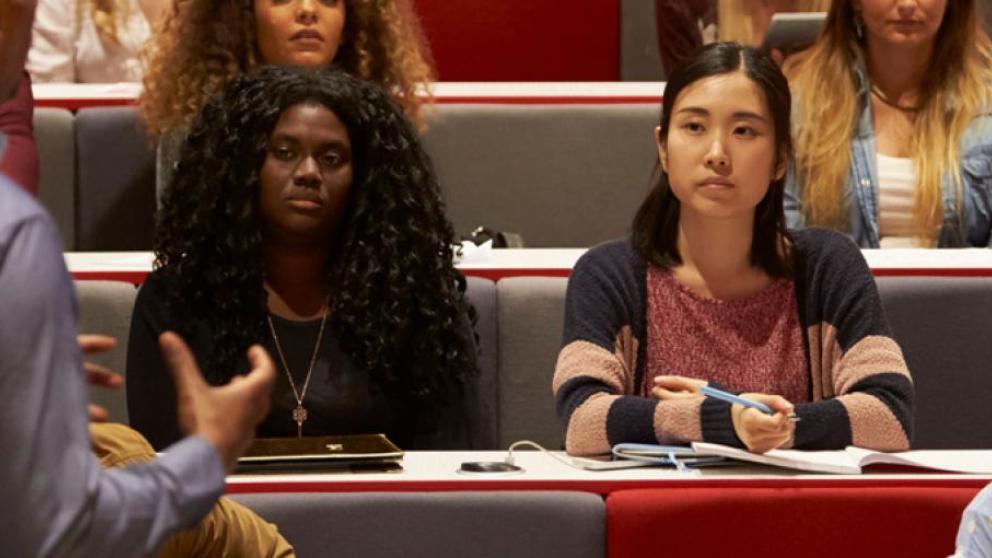
Health and Vocational Behaviour (Level 7, 10 credits)
Part-time
One semester
January 2026
In a nutshell
This 10 credit module will provide you with knowledge of a range of influences on health behaviour and the relationships between work, health and wellbeing, as well as a critical understanding of the use of digital data in health behaviour change all within a prosthetics and orthotics context.
You will:
- gain advanced understanding of biopsychosocial mechanisms of health behaviour and the impact of environmental factors on behaviour patterns
- have the opportunity to select, apply and critically appraise the use of digital data in eliciting health behaviour change
- develop advanced skills in analysing complex digital datasets systematically and creatively to describe patterns of a range of health and vocational behaviours in P&O context
All about the course
Digital data in health and vocational behaviour
- How apps and data integration software support lifestyle management
- Self-management of activity and participation, and self-help groups online
Environmental and psycho-social influences on health behaviour
- Built environment – workplace issues, transport, home.
- Factors that affect engagement with opportunities to self-manage/engage in health promotion programmes
In P&O (prosthetics and orthotics) and LMIC (lower and middle-income countries)
- Workplace and accessibility in P&O
- Social stigma of assistive devices
- And how these differ in developed and developing world contexts
Please note that exact modules and content offered may vary in order to keep content current and, for courses that offer optional modules, may depend on the number of students selecting particular options. When accepting your offer of a place to study on a programme with optional modules, you should be aware that optional modules may not all run each year. Your tutor will be able to advise you as to the available options on or before the start of the programme. Whilst the University tries to ensure that you can undertake your preferred options, it cannot guarantee this.
The School of Health and Society
The School of Health and Society is a forward-thinking, dynamic school with a commitment to lifelong learning and real world impact.
Our courses are informed by the latest research and we work closely with organisations from both the public and private sector to ensure our teaching is at the forefront of practice.
What about after uni?
This module will equip you with advanced critical knowledge and application of research/inquiry methods in health and vocational behaviour, alongside due consideration of research, clinical governance and ethics frameworks at national and local levels.
Career Links
As a school, we work with over 100 health and social care organisations so our links with industry are very strong. These relationships will be of direct benefit to you because our academic team work in practice in some of these organisations at a senior level so are able to keep you at the forefront of developments in the sector which in turn help you provide a better service.
What you need to know
This module is aimed at individuals with a relevant degree as outlined below and an interest to develop their understanding of health and vocational behaviour within the Prosthetics and Orthotics context and/or those working towards developing a research proposal for a postgraduate level degree e.g. MRes/PhD/DProf.
Previous study and experience
Applicants are normally expected to achieve either:
- a minimum of an upper-second class honours degree from an undergraduate course in an appropriate physical or biological science, science, mathematics or engineering
or
- a clinical qualification related to prosthetics, orthotics and the other relevant allied health disciplines, with additional evidence of skills in engineering and physical sciences (e.g. biomechanics, human gait)
Accreditation of Prior Learning (APL)
We welcome applications from students who may not have formal/traditional entry criteria but who have relevant experience or the ability to pursue the course successfully.
The Accreditation of Prior Learning (APL) process could help you to make your work and life experience count. The APL process can be used for entry onto courses or to give you exemptions from parts of your course.
Two forms of APL may be used for entry: the Accreditation of Prior Certificated Learning (APCL) or the Accreditation of Prior Experiential Learning (APEL).
How much?
Additional costs
You should also consider further costs which may include books, stationery, printing, binding and general subsistence on trips and visits.
